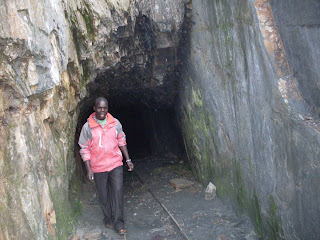Government lawyers in East Africa to sharpen oil and gas negotiation and policy-making skills
Public sector lawyers involved in drafting of the extractives sector
laws and policies in the region will next week undergo training to improve
their negotiation and policy-making skills.
The training is aimed at assisting East African Community (EAC)
countries to make extractive industry contracts and related policy to ensure
they achieve tangible benefits from their natural resources, the East African
Development Bank (EADB), which is hosting the training, said in statement
yesterday.
The training, that takes place from March 9-14 in Kigali, targets
senior government lawyers involved in policy formulation and negotiations and
law dons from Kenya, Tanzania, Rwanda, Burundi and Uganda.
“The training is designed to build the capacity of public sector
lawyers involved in negotiating transactions and drafting agreements for
extractive and other industries,” it added.
The bank said the training will help reduce the risk of costly or
politically-difficult dispute resolution, going forward.
Vivienne Yeda, the EADB director general, observed that the last decade
had seen the discovery of minerals such as coal, gas, oil, titanium, among
others, in East Africa, noting that the region had entered a period of
‘economic tipping point.’
She noted that this calls for laws and policies that will safeguard
revenues from extractive industry.
“The fundamental question we must ask, going by the experiences of
other resource-rich regions in Africa, is whether the region will benefit from
these resources,”said Yeda
“Can East Africa ensure the newfound resources are converted into
tangible wealth for its people, current and future generations?”
In the past few years, oil and gas discoveries have been made in
Uganda, Kenya Tanzania.
Rwanda is also exploring for oil and gas, but has various firms
involved in mining of various minerals like wolfram and cassetirite in
different parts of the country.
The training should be a big boost to the region, especially as some
countries grapple to make extractive sector laws that ensure equitable
distribution of resources from the sector.
Also, the need for policies that promote sustainable development of
the natural resources to safeguard the environment is important, according to
industry experts.
The seven-day training will be conducted jointly with global law firm,
DLA Piper and its affiliate, New Perimeter, which provides free legal
assistance.

